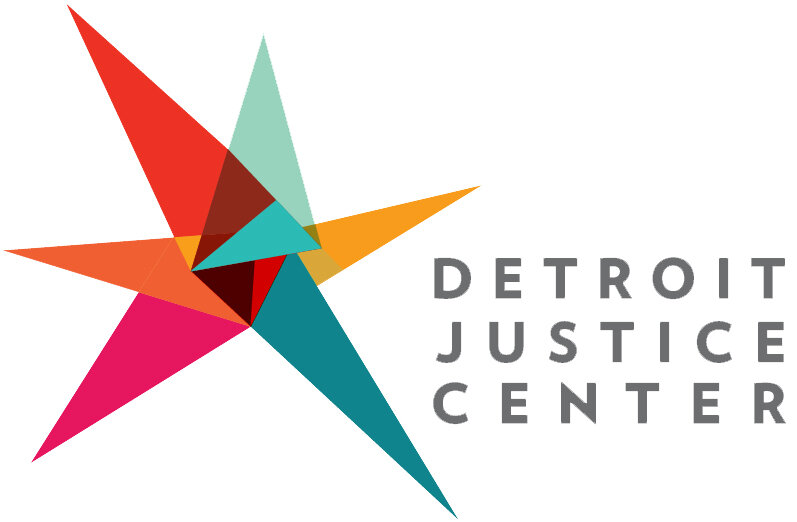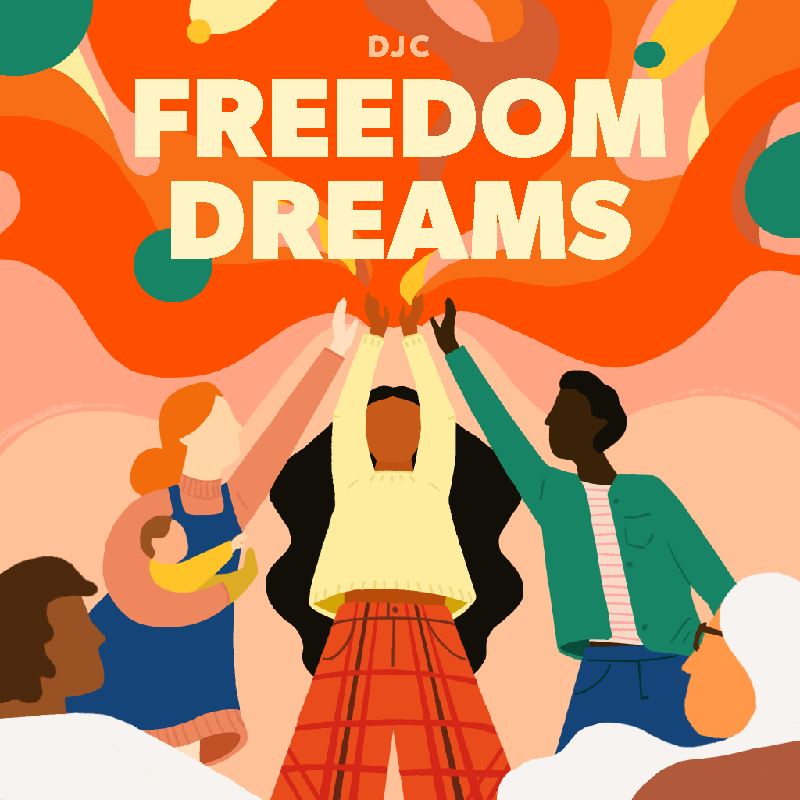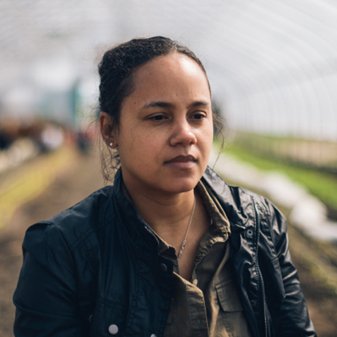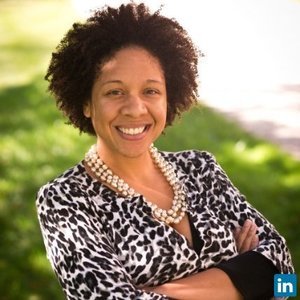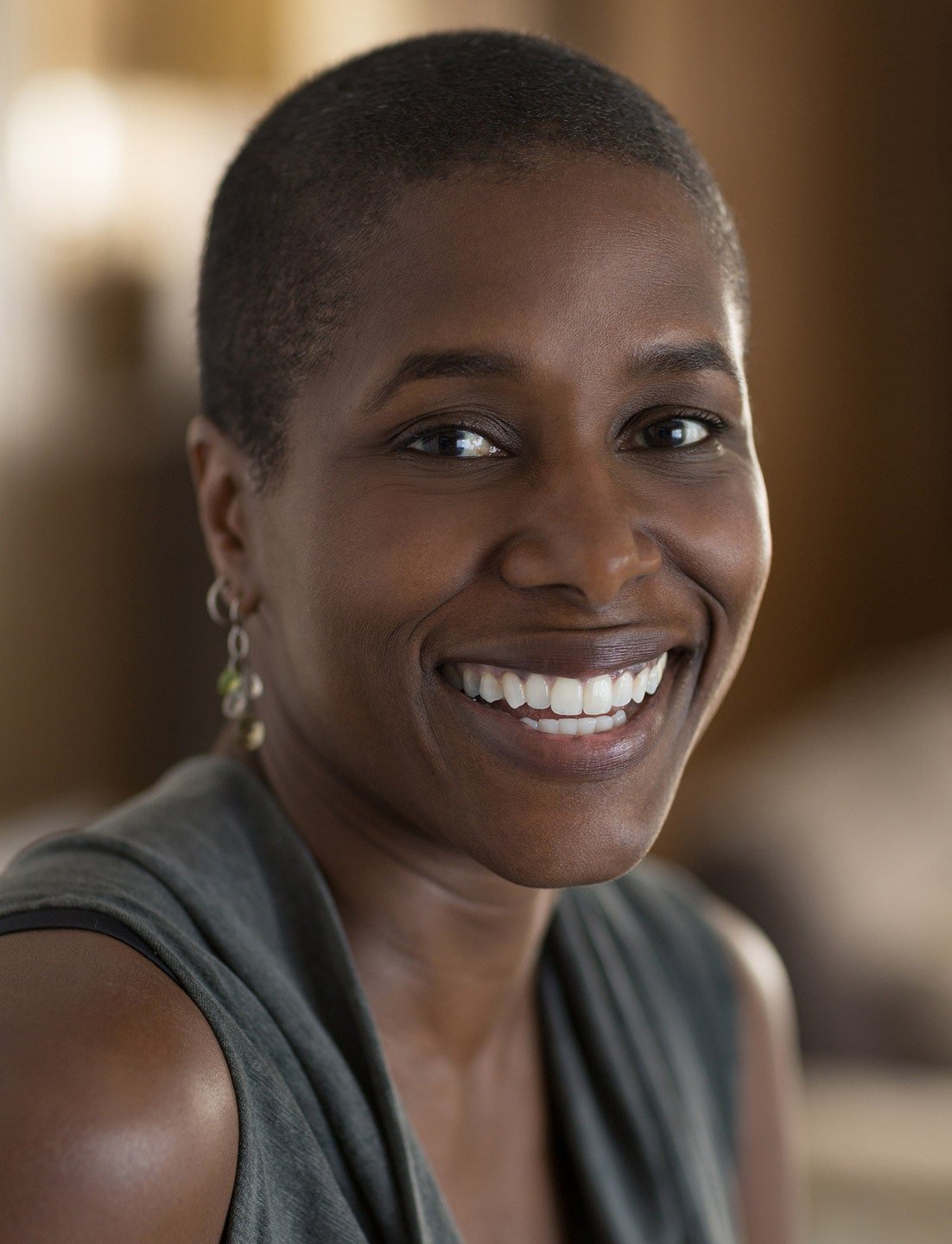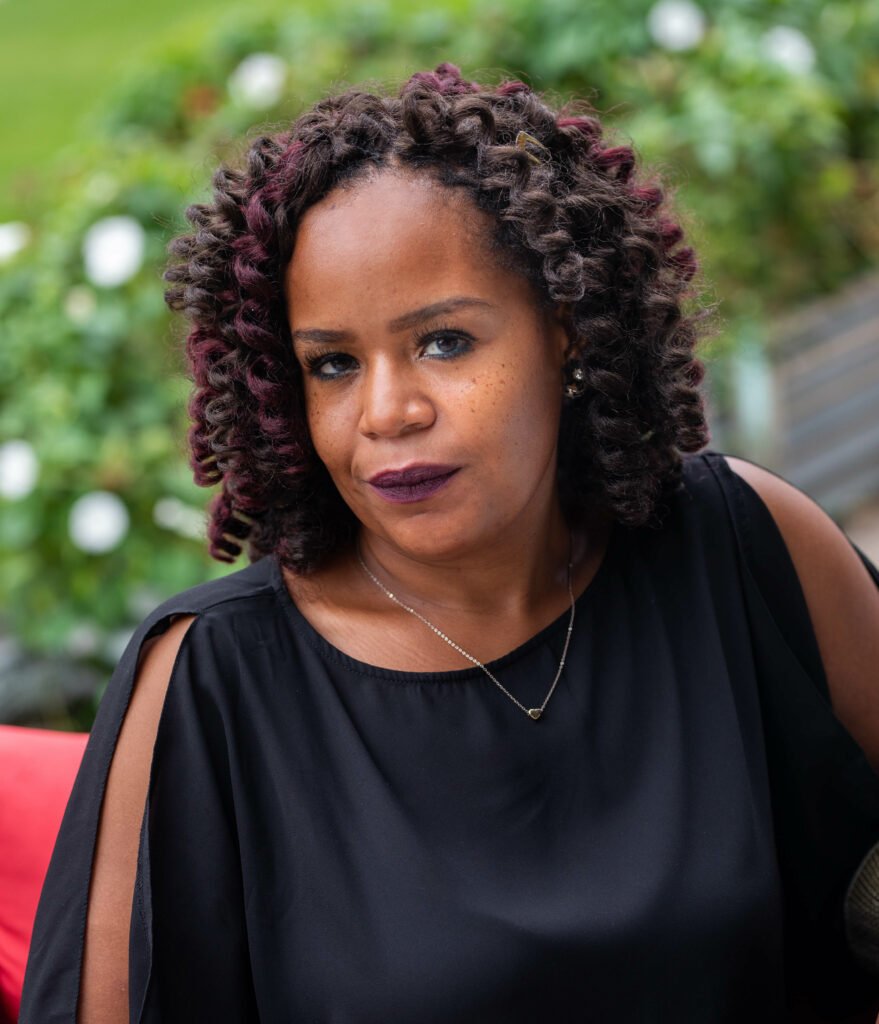Episode Summary
“For anti-colonial movements in the past and still today, regaining access to land that you and your people were displaced from is a core part of what it means to be free.”
In this final episode of the first season of Freedom Dreams, our guests take on black liberation through land ownership and food sovereignty. Tepfirah Rushdan and Erin Bevel talk about co-founding The Detroit Black Farmer Land Fund to help local growers navigate purchasing land. Natalie Baszile, author of We Are Each Other’s Harvest, discusses the history of Black farmland loss and the recent Black Farmers Act. And, Lynelle Herndon shows us how Home Ec Detroit builds community gardens on abandoned Detroit lots.
You can contribute the The Detroit Black Farmer Land Fund here and check out Natalie Baszile’s book here.
Tepfirah Rushdan is a co-director at Keep Growing Detroit, which provides resources and technical assistance to hundreds of gardens in the city. Over the last 10 years she has combined her love for people and nature through various environmental projects in the city including developing conservation skills in youth, vacant land remediation, youth and adult farmer training programs, wild edible walks, community gardening and climate change and resiliency research. She has held seats on many community driven boards such as Detroit Food Policy Council, RAHAM (Response able hands and minds), Detroit Environmental Agenda, and Uprooting Racism Planting Justice.
Erin Bevel is a Co-Founder of the Detroit Black Farmer Land Fund and Board Member at Detroit Black Community Food Security Network. She also teaches Political Science full time at Howard University.
Natalie Baszile has a M.A. in Afro-American Studies from UCLA, and is a graduate of Warren Wilson College’s MFA Program for Writers. Her book Queen Sugar was named one of the San Francisco Chronicles’ Best Books of 2014, and nominated for an NAACP Image Award. Natalie has had residencies at the Ragdale Foundation, Virginia Center for the Arts, Hedgebrook, and the Djerassi Resident Arts Program where she received the SFFILM and the Bonnie Rattner Fellowships. For two years, she was Writer in Residence at Saint Mary’s College where she taught a fiction workshop in the MFA Program.
Lynelle Herndon is a mom, wife and business owner of Home Ec Detroit, a company that helps create community gardens on empty Detroit lots. Herndon has a community service background, having served in City Year and AmeriCorps. She has a bachelor’s degree in political science from NC State University. She is originally from Washington, DC but she has been living permanently in Detroit since 2017 where she has been a barista and admin in the Wayne County government.
Episode Transcript
TEPFIRAH: In my twenties I went all through this whole black revolutionary phase. Okay. But it was very theoretical. Mm-hmm , it’s like, okay, how do we obtain our freedom? How do we obtain liberation? How do we combat this system of oppression? Like all went so deep into it. Right. But when it comes down to it liberation comes from growing food period.
AMANDA: I’m Amanda Alexander, founding Executive Director of the Detroit Justice Center.
WHITLEY: And I’m Whitley Granberry, Staff Attorney at DJC. And this is Freedom Dreams.
AMANDA: The show where we believe another world is possible and we’re talking to the people who are building it.
WHITLEY: Casey couldn’t make it to today’s taping, but, they will be back for season 2. I will do my best to make up for their absence.
AMANDA: I’m so happy to have you co-host with me today, Whitley. So much of the work you lead at DJC focuses on building collective power through our Economic Equity Practice. You and that team support organizations in launching community land trusts, worker-owned cooperatives, and other solidarity economy initiatives. And today in our season 1 finale, we’re talking about growing power–and the connections with land.
WHITLEY: Yes, last time I was on Freedom Dreams was as a guest for the How Can Cooperative Economics Build Collective Power? episode. We were joined by one of our clients, Jerry Hebron of Oakland Avenue Urban Farm, who is a leader in Detroit’s incredible urban farming movement. I’m excited to be back and to talk with other leaders in the city who are nurturing Black farmers in Detroit by helping them to secure land.
LYNELLE: I’m Lynelle. We’re at Home Ec Gardens over on the west side of Detroit. It’s called Home Ec because Home Ec was taken out of the schools and these are the things we need to know to survive.
AMANDA: That’s Lynelle Herndon, one of the first beneficiaries of the Detroit Black Farmer Land Fund, which we’ll learn all about today.
ERIN BEVEL: I stand on the shoulders of my great, great, great, great grandparents who I found out, bought their farmland in 1865.
WHITLEY: That’s Erin Bevel. She’s a co-founder of the Detroit Black Farmer Land Fund. Another one of the co-founders is Tepfirah Rushdan who you heard at the top.
AMANDA: The Detroit Black Farmer Land Fund is rebuilding intergenerational land ownership for Black farmers in Detroit, helping them with land acquisition and farm support. I spoke with Erin and Tepfirah this past summer at Lynelle’s farm, Home Ec Gardens.
AMANDA: So can you all talk about what was the inspiration behind getting this fund off of the ground last year?
TEPFIRAH: The inspiration? Well so working at Keep Growing Detroit, I’ve been working with a lot of farmers on their land purchase process in the city. And definitely kind of just I began to collect some data around who owns their land, who doesn’t, just as like our land BA like, I, you know, we have this long history in Detroit of like how to procure land. We have all this vacant land. Right. We have like a third of our city is vacant but accessing ownership has been a hurdle over the years. Right. And so we got a land bank in the city and they like, I mean, I think to date, I mean, I don’t have the exact number, but it’s something like 90,000 parcels or something like that in the city and a lot of power. Um, so it’s also just like watching people interface with the land bank and watching people try to go through this process has been kind of heartbreaking because people get lost in the sauce.
WHITLEY: So, Tepfirah began to realize if they could help folks come up with often just a little bit of money, like a few thousand bucks in some cases and help these local growers navigate the system of land purchase, they could do some real good.
TEPFIRAH: and then 2020 came and we all were just like feeling the funk of 2020. Like the real inequities had just really came to the surface. Right. And so we’re like, let’s do this, like now’s the time. And we did it.
AMANDA: We will return to Erin and Tepfirah shortly. But first we want to jump back in time and think about historical context–it’s what we do on Freedom Dreams. Freedom movements across the world have long connected land and liberation and power. For anti-colonial movements in the past and still today, regaining access to land that you and your people were displaced from is a core part of what it means to be free.
I learned this up close when I first went to South Africa in 2003 to interview members of the Landless People’s Movement for my college thesis. It was less than a decade after the transition from formal apartheid and several social movements had begun to question and challenge the country’s direction. The Landless People’s Movement (or LPM) even refused to recognize South Africa’s democracy as legitimate because land had not changed hands. They said ‘we have a ballot box democracy’ because yes, more people can vote, but this isn’t a true democracy because less than 3% of land has changed hands from white people to Black people. The LPM and other movements said ‘we’re not free while a quarter of the population still lives in shack settlements without water or electricity. We’re not free as long as people do not have access to the HIV treatment they need.’ So, people began taking matters into their own hands and occupying land, fighting for housing, fighting against water shutoffs, and demanding HIV treatment. I was lucky to learn from LPM members and other activists who were still trying to salvage their revolution–they insisted that they hadn’t risked their lives or spent decades in prison or exile, they hadn’t buried comrades, only to live in the most unequal and heavily securitized country on the planet. The freedom struggle wasn’t just about the right to vote, just like it wasn’t just about voting or civil rights in the U.S. We are not free until all of us have safe housing, safe water, a fulfilling livelihood, excellent healthcare. They taught me to be laser focused on what true freedom means, and not to settle for things like formal equality or even a beautiful looking Constitution, like they have in South Africa. We’re not free until material conditions have changed, and people have what they need to live well, and all of our communities are thriving.
And, as we’re exploring in this episode, having land is a core part of self-determination for communities–whether in South Africa or here in Detroit. Or in the Land Back movement, a call to return Native land to Native people in the Americas. Sometimes it’s about having land to be able to feed yourself and your community (as we see in the urban farming movement in Detroit), sometimes it’s about being able to stay put and form a community land trust with your neighbors and not be priced out by gentrification, sometimes it’s about reclaiming ancestral lands. In each of these scenarios, it’s about self-determination and developing or continuing a relationship with the land that is sustainable.
WHITLEY: Those are powerful lessons you learned about the ties between equal access to and care of land and needs being met, Amanda. Thank you for sharing, and we’ve got back up for you! Today we’re digging even more deeply into the history of Black land ownership in the US. Natalie Baszile is a writer and author of the book, compilation, and reflection of experiences, called We Are Each Other’s Harvest.
AMANDA: When I started reading it, I was taken by the stories that Natalie has collected of Black farmers who have persevered in the face of all the threats to Black farming in the U.S. We wanted to talk with Natalie about the history of Black farm land loss because we think it helps set the stage for the work of the Detroit Black Farmer Land Fund.
BASZILE: The most black farmers in the United States was around 1920. There were about 925,000 black farmers owned about 14 million acres of land across the country in 2017. The number of black farmers had dwindled down to just under 45,000, which if you think about it is like the population of any state university, like UT Austin, right?
WHITLEY: That land loss and the dramatic decline in black land ownership has everything to do with the highly problematic practices deployed strategically by the USDA, the United States Department of Agriculture
BASZILE: So what does that mean? It means that the USDA, which is a government agency created specifically to aid farmers with, you know the latest technology all of the information that they need to grow different crops. Also, the USDA is an agency that was designed to lend farmers money. That that is the reason why that agency was created, but the dollars that were given to the USDA that was supposed, that were supposed to be lent to black, lent to farmers. What happened on the local level was those federal dollars were distributed to these rural communities.
And because most of the USDA agents in those local rural communities really treated those federal funds as their personal funds. Right. And were really kind of the thiefs and or the, as in these local communities. And they were the people who were determining who would get access to that money. So black farmers, when they would go in at the end of the harvest season, and they would apply for loans for the coming year, their loans were systematically rejected or declined. Their applications were literally torn up, right? So that they were not able to get access to those federal funds. If they, if their loans were approved the approval process was extended well beyond the season when those farmers needed to buy seeds needed to buy fertilizer and needed to buy equipment. So what did that mean?
AMANDA: It meant that there was a cascading effect of these discriminatory practices, because if you can’t get the loan on time, that means you can’t get the seeds on time.
BASZILE: If you can’t get the seeds on time, you can’t plant on time. If you can’t plant on time, you’re not gonna have a viable crop to harvest the coming year. And if you don’t have a viable crop to harvest, it means that you don’t have the income to pay back the loan. This type of thing happened year after year, generation after generation, specifically to black farmers. And when black farmers would get farther and farther and farther behind with their loan payments, or they defaulted on their loan through no fault of their own, then the government would come in and the USDA would come in and they would seize these farmers assets, not just their farms, but their homes, their cars, their personal assets.
This is what led over generations to the dramatic decline in black farmers in the late eighties, early nineties, there was a lawsuit, it was a class action lawsuit. Timothy Pigford was the main plaintiff, and about 400 farmers sued the USDA accusing them of these discriminatory practices and the USDA actually acknowledged that yes, this had happened, right. They won that suit. But unfortunately, the average farmer who was, who participated in that class action lawsuit only got about $50,000 if they got anything at all. And often that settlement was taxed. And so if you are in debt in the hundreds of thousands of dollars, right, and you’ve managed to hold on to your land by your fingernails, a 50,000 settlement is no money. Mm-hmm, that’s not going to help you.
AMANDA: Since Pigford V. Glickman, there has been some new legislation introduced to right these historic wrongs with policy, namely the Justice for Black Farmers Act. The bill was announced in 2020 and has been championed by groups like the National Black Food & Justice Alliance. So, maybe after all these years there’s some possibility of addressing this discrimination structurally.
BASZILE : And there is talk of loan forgiveness, for the black farmers who have, you know, been struggling all these years. There is talk of land being set aside for the new generation of black farmers, black and brown and indigenous farmers to gain access to land. But, you know, sadly enough, there is also a huge backlash now where, people are claiming that this is reverse discrimination and white farmers aren’t getting their fair share when white farmers have been getting more than their fair share for the last a hundred years. Mm-hmm. And so you would think, you know, we, as much as I think people would want to celebrate now, they’re, there are new headwinds that these farmers are facing. Right, right, right. Just in order, just as they are just trying to get what they’re actually owed.
WHITLEY: Obviously, we’re pulling for the Justice for Black Farmers Act. But in the meantime, it’s the grassroots work of organizations like the Detroit Black Farmer Land Fund that can make a difference in the short term.
AMANDA: The Detroit Black Farmer Land Fund is working to counteract this history of land loss and has already supported 30 Black farmers through the process of obtaining land in Detroit.
WHITLEY: After a break, we’ll head back to Home Ec Gardens to talk to the founders of the Detroit Black Farmer Land Fund.
BREAK
AMANDA: I am back at Home Ec Gardens on Detroit’s West Side. And I’m sitting with Erin Bevel and Tepfirah Rushdan, co-founders of the Detroit Black Farmer Land Fund. Their goal is to re-build intergenerational land ownership for black farmers in Detroit. They launched the fund on Juneteenth, 2020. Here’s Erin Bevel.
ERIN: Juneteenth also of course represents for black people…like that was the beginning of the black farmer in a lot of sense, because it’s like, that was the end of slavery. So it was like, you weren’t farming for someone else. You weren’t growing someone else’s food, you weren’t doing anything for anybody else. Like now it was the time when it was like, we can dream about doing this for ourselves. And so it was, it was just a beautiful kind of way to build together. Even like for me, I stand on the shoulders of my great, great, great, great grandparents who I found out, bought their farmland in 1865. Right. So, I mean like, this is, this is it’s me. And like, when we talk about agriculture, we talk about returning to the land in this way and black land reclamation, like it’s also about like ancestral justice and ancestral healing, and like coming back to something, a seed that was planted that year for us to be able to do this for ourselves.
AMANDA: So you launched the fund, your goal was $5,000. And what was the response? Did we, did we meet it in like one day?
ERIN: Yeah. That couple hours. It was, I was out kayaking. I was like, that’s the way. Yeah. So I was like, it was Juneteenth. I was like, we’re talking y’all before it was a national holiday, right? Yeah and I’m like, whoa, whoa, whoa. And like, yeah, the response was amazing from the community. And I just really feel like, you know, folks in Detroit were ready to really put their, put their money where their mouth was in terms of equity, injustice. And so, I mean, black, white, brown donors of all sizes, $5, $10 up to $10,000 donated. And then we ended up with, I think 65,000 was the end, like within a month. It’s amazing.
AMANDA: So then you have the money and then you were able to match that with what, how many farmers initiative talk about that process of getting the money to the farmers and what kind of visions that they had.
TEPFIRAH: 60 farmers applied. And so we went through this like rigorous review process. We were like, okay, now how do we choose? How do we choose fairly? You know what I mean? Like, so, you know, we looked at like, you know, how is the farmer relating to the community and the neighborhood around them? You know, what steps have they done to do that? What kind of experience do they have farming is, you know, do they have, will they make this a successful project?
ERIN: Like one of the bigger things that we really kind of distilled down and defined for this, when we came, when going into our second year of fundraising was like, we’re about like black intergenerational farmland ownership. And so when we’re able to kind of pick up and maybe have that dream again, right? So like this is something that maybe we can pass down to our children or pass to another farmer or pass to another black agriculturalist. Like that’s so powerful. And so, I mean, that’s a really big piece. So we really made sure too that our application, you know, made sure that people understood like this is, this is where we’re at.
AMANDA: I mean, it’s not, I know that you guys are making some really deep connections between like land and self-determination and power and black food sovereignty too. can you say more about kind of like what you mean when you say black food sovereignty and self-determination?
ERIN: Yeah. I think that, you know, black food sovereignty is, you know, again, it’s not just like this, this buzzword. Okay. So we’re in the middle of Detroit, which didn’t have grocery stores for years. Right. And so, like, there was no place for people to go and like have choices about like fresh food and we’re dealing with health disparities in our community. And of course that was pushed even further to the forefront with COVID. I mean, people who have high blood pressure, diabetes, like all these things that are impacted heavily by diet. Right. And so when we talk about like, how can we liberate ourselves? How are we freeing ourselves and how are we doing this thing that we need to do so that we can be in control of the lives that we’re living? You know, growing our own food again it’s very Sankofa for me.
Right. It’s like we’re reaching back and like taking something that we started and that we brought to the world and like bringing it back to us. Right. And so, you know, we live in a society where land ownership is the big of wealth. Right. And so when we can do it on land where we’re secure, right. So, food sovereignty also includes this land security piece for us, because, you know, it’s like, if you’re doing all this great gardening and growing all this wonderful food, but like the city can come raise it, you know, just because they sold it to somebody else, then it’s, it is not like there’s not security in that. Right. There’s still there’s stress in that. It’s like, it’s like, you’re doing something, but it’s like, it feels wrong. It’s like, but it’s not wrong cuz it’s right.
TEPFIRAH: Yeah. I mean, for me, I like, I, you know, in my twenties I went all through this whole black revolutionary phase. Okay. But it was very theoretical. Mm-hmm , it’s like, okay, how do we obtain our freedom? How do we obtain liberation? How do we combat this system of oppression? Like all went so deep into it. Right. But when it comes down to it liberation comes from growing food period. You know what I mean? Like how do you take care of a people without being able to nurture them with food? You know what I mean? And so I, this was just like a very, for me, a very practical path toward liberation for black people and whatever, you know, however it starts, I’m a black nationalist, you know what I mean? So that may be controversial for some, I feel like we’ve been in this nation long enough and haven’t you know, haven’t been able to truly step into leadership truly, you know, do for ourself, you know what I mean?
And so, you know, and I think that that term scares some white people, well-meaning white people, right. Because it’s like, oh, you wanna separate from us. And it’s not that it’s like, you have Chinese Americans who live here, you have Arab Americans who live here, you have Jewish Americans who live here. Right. but we have to have this base. We have to have this unity and shared understanding in between us. Right. And that comes from nationhood for me, you know what I mean? And so, that sheer unity can also lead toward the reparations that we’re owed. If you look at any other community that has received reparations, they’ve done it under the banner of nationhood, you know? So, we need to get on the same page about what reparations would look like for us.
What do we wanna see from this country? And all of this for me is like, okay, once I got to that point, I’m like, okay, so you wanna have a nation, oh, you need to feed these people. on some real, you know what I mean? On some real, you need to be able to feed these people. We need as many black producers as we can get. You know what I mean? And, whether you’re growing, four eggplants today, and next year, you’re growing four rows of eggplant and next year you’re taking that to market. And the next year, like, no matter how long it takes, we need to invest in our black producers.
AMANDA: So the very last question we have for you is one that we ask everyone on the podcast. What is your freedom dream?
TEPFIRAH: I want to change people’s relationship to land. I want people to understand and recommit to like loving this land and knowing that, like, she feeds us knowing that we owe her respect. I’d like to see a change in people’s attitudes. And I think for ’em that, you know, we’ll see a lot of healing on our planet, both like these kind of racial disparities that we’re talking about but also some of the climate change issues that we’re talking about, it all comes back to like, you know, understanding, appreciation, and love for the land and respect,
ERIN: I’ve always wanted a sovereign nation, right? Like I’ve always like wanted a sovereign nation of our own, but you know, to me, when I think about, when I think about the planet and I think about the world, you know, I think about there being a re indigenization of world culture, right. Of global culture. And when I say that I’m in like an acknowledgement that the, you know, global capitalist systems that we exist in are not going to sustain the planet. Like I’m thinking intergenerationally, like I’m thinking seven generations ahead of me. And so it’s like, I don’t know if there’s gonna be seven generations ahead of me. If we keep going the way that we’re going. And so if I want them to be able to exist and I want them to be able to thrive and I wanna give them, I want to hand them a sovereign nation. Like I just think that there are so many things about indigenous cultural.
BASZILE: I hope…it’s my dream that 50 or a hundred years from now, people of color can feel a sense of peace and that a lot of the old systems and structures that continue to hamper our forward progress have really been deconstructed, that we’re not fighting this same fight, you know, and that we are really living in a new day, where people feel like the playing field is level where they feel that they have access to opportunity, you know, in a significant way.
AMANDA: Those are the Freedom Dreams of 3 of our guests today, Natalie Baszile, Tepfirah Rushden and Erin Bevel. And thanks to Lynelle Herndon for hosting us at her farm Home Ec Gardens. You can support the Detroit Black Farmer Land Fund by following the link in our show notes.
WHITLEY: One final point I want to make is that a lot of our discussion today has focused on land ownership. We want to remember that this land is older and has a longer memory than we do. We want to honor and respect this land, so that our babies and grandparents – our loved ones – can access this life giving land. These are first-hand lessons learned from my work with burgeoning community land trusts and cooperative businesses in the city.
AMANDA: Yes, thank you Whitley. The rest of the country can learn so much from the urban farming movement in Detroit and the work that many people have been doing for decades here, folks like Malik Yakini and the Detroit Black Community Food Security Network and Wayne Curtis and Myrtle Thompson-Curtis at Feedom Freedom Growers, and others. They, like the founders of the Detroit Black Farmer Land Fund, have much to teach us about how to grow food and how to sustain a community–politically, spiritually, and economically.
WHITLEY: You can get Natalie Bazille’s book, We Are Each other’s Harvest from your local independent bookstore. And speaking of being each other’s harvest. The title of Natalie’s book comes from a Gwendolyn Brooks poem.
AMANDA: It’s called “Paul Robeson” and we want to read it here.
That time
we all heard it,
cool and clear,
cutting across the hot grit of the day.
The major Voice.
The adult Voice
forgoing Rolling River,
forgoing tearful tale of bale and barge
and other symptoms of an old despond.
Warning, in music-words
devout and large,
that we are each other’s
harvest:
we are each other’s
business:
we are each other’s
magnitude and bond.
AMANDA: That’s the perfect note to end this first season of Freedom Dreams on. We’ve talked to incredibly powerful organizers and community builders this season who have shown us what’s possible when we orient toward each other, when we put our energy into building communities that leave no one behind. We’ve learned that it’s possible to empty city jails and defund police departments. We’ve learned it’s possible to create youth-led healing hubs, radical well-being centers, and to build worker-owned cooperative businesses. These are the people and the experiments that inspire me most and that keep me going when this work is hard. And we’re only getting started–we’ll be back with season 2 later this year.
WHITLEY: And in the meantime, we’ll drop a couple special episodes, so stay tuned! Freedom Dreams is a production of the Detroit Justice Center. Special thanks to our team: Zak Rosen our producer, as well as Lawrielle West and Elana Maloul for research and assistance.
AMANDA: The Freedom Dreams’ theme song is by Asante. Artwork is by Gunnar x Hobbes.
If you want to learn more about today’s episode, head to FreedomDreamsPodcast.com. Email us a voice memo of your Freedom Dream at FreedomDreams@DetroitJustice.org.
WHITLEY: You can also write to us on social media. We’re FreedomDreamsPod on IG and FreedomDreamPod on Twitter.
AMANDA: If you feel compelled to donate to the work we do, you can find us at detroitjustice.org/donate.
WHITLEY: And lastly, if you love this show and want us to find a wider audience, please leave us a rating or review at Apple Podcasts.
